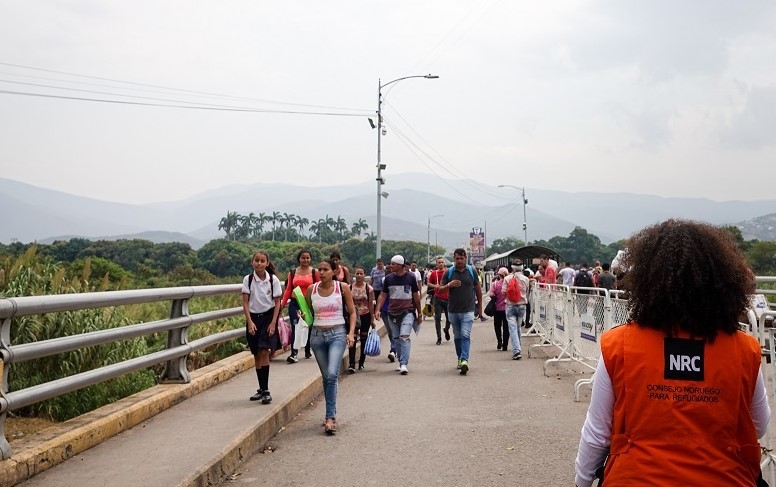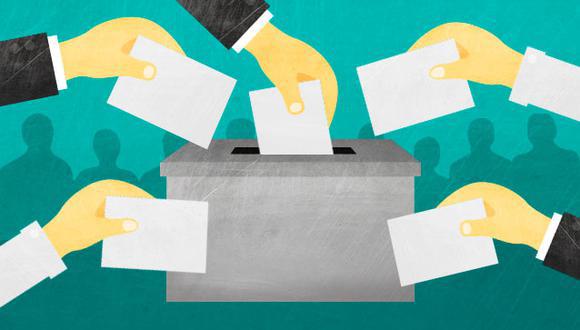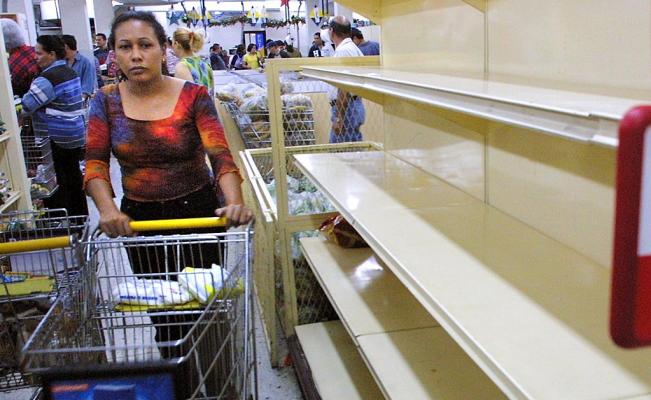April 20 marked the deadline for the Maduro regime to exercise a right of reply to a document published on March 31 by the Prosecutor of the International Criminal Court (ICC), Karim Khan, dismissing the reasons presented by the regime to prevent the continuation of the investigation on the alleged commission of crimes against humanity in Venezuela.
The date also marked the deadline for the Victims Participation and Reparations Section (VPRS) to transmit the testimonies and opinions of the victims of human rights violations in Venezuela to the ICC Pre-Trial Chamber. One day later, on April 21, the Chamber reported the reception of 1,827 forms with the testimonies of 8,900 individuals, 630 families and 2 organizations that denounce the commission of crimes against humanity in Venezuela.
The Observatory on Human Rights Observatory at Universidad de Los Andes (ODH-ULA) prepared a report on the work of the ICC in Venezuela, with an emphasis on the evidence that supports the investigation by the Prosecutor. The report describes specific cases that demonstrate the alleged commission of crimes against humanity by officials of the security forces of the Venezuelan State in the Andean region of the country.
Alleged crimes against humanity committed in Venezuela
The Rome Statute is the international treaty that established the International Criminal Court (ICC). It was signed on July 17, 1998, by 120 States, including Venezuela, and entered into force on July 1, 2002. This instrument establishes the permanent nature of the ICC and its structure, in addition to setting forth the most serious crimes against humanity, including the crime of genocide, war crimes and the crime of aggression.
Eleven crimes against humanity were established in the Rome Statute: murder; extermination; slavery; deportation or forced transfer of population; imprisonment or other severe deprivation of physical liberty; torture; rape, sexual slavery, forced prostitution, forced pregnancy, forced sterilization or any other form of sexual violence of comparable severity; persecution of a group or collectivity with its own identity based on political, racial, national, ethnic, cultural, religious, gender-defined or other reasons universally recognized as unacceptable under international law; enforced disappearance of persons; the crime of apartheid, and other inhumane acts of a similar nature that deliberately cause great suffering or seriously threaten physical integrity or mental health.
In the 2019 Report on Preliminary Examination Activities, the ICC Prosecutor’s Office described the following “crimes allegedly committed against opponents of the Government” that could constitute crimes against humanity: murders and injuries; deprivation of liberty; ill-treatment and torture; sexual and gender-based crimes, and alleged acts of persecution.
Later, in the 2020 Report on Preliminary Examination Activities, the ICC Prosecutor’s Office concluded that “the information available at this stage provides a reasonable basis to believe that since at least April 2017, civilian authorities, members of the armed forces and pro-government individuals have committed the crimes against humanity of imprisonment or other severe deprivation of physical liberty (…); torture (…); rape and/or other forms of sexual violence of comparable gravity (…); and persecution against any identifiable group or collectivity on political grounds”.
Cases documented in the Andean region
The victims assisted by the ODH-ULA in the Andean region of Venezuela, or whose cases were documented by the organization, suffered human rights violations that could be considered by the ICC Prosecutor’s Office as crimes against humanity, including extrajudicial executions, arbitrary detentions, enforced disappearances, torture, persecution on political grounds and other inhumane acts of a similar nature that seriously violate human dignity, all in a context of political persecution.
Between April and July 2017 alone, in the framework of the anti-government social protests that took place that year, the Observatory documented a total of 15 victims of extrajudicial executions in five municipalities of the state of Mérida. That same year, at least 290 arbitrary detentions were carried out by police, military and Bolivarian Intelligence Service (Sebin) officials. ODH-ULA has denounced cases in which torture has been used as a mechanism of intimidation against people who protest and are perceived as opposed to the government.”
The observatory has also documented cases of persecution for political grounds in Venezuelan universities. According to testimonies collected by the ODH-ULA, in 2017 alone, nine leaders of student movements and one teacher were forced to leave the country fearing reprisals for their active participation in the protests.
Likewise, the ODH-ULA has evidence of the commission of inhumane acts that seriously threatened the integrity and physical health of people. The report of the organization documented different violations of the human rights of people who, after an abusive and disproportionate use of force, suffered eye trauma as a result of the repression of protests by officials of the State security organs. The document details that at least twenty-two people lost their eyes as a result of State repression in Mérida.
The enforced disappearances of the left-wing political leader Alcedo Mora and his friends, Colombian brothers Eliécer Vergel Prado and Jesús Esneider Vergel Prado in Mérida are two cases that could constitute a crime against humanity. These disappearances occurred between February 27 and March 2, 2015, and the Venezuelan justice system is yet to report on the corresponding investigations. Relatives of the victims have publicly pointed to the Bolivarian Intelligence Service (Sebin) as responsible for the disappearances.
The investigation of the ICC is necessary due to State impunity
Through different actions and omissions of officials of the Venezuelan regime, ODH-ULA has been able to verify the absence of an intention on the part of the justice institutions of the Venezuelan State to independently and impartially investigate the alleged commission of crimes against humanity in the country.
The legislative reforms that the regime has made in the context of the ICC investigation, as well as the promulgation of the Law on the Respect of Human Rights in the Exercise of Public Function and the Law on the Commission for the Guarantee of Justice and Reparation for Victims of Crimes Against Human Rights, do not solve the impunity that prevails in Venezuela but rather consolidate the subordination of the judicial Power to the Executive branch.
The most important reason for the continuation of the investigation is that the government of Nicolás Maduro insists on denying that human rights violations have been committed or are being committed in Venezuela, describing the accusations as “fallacies”. On February 28, 2023, the regime denounced before the ICC “the media and geopolitical aggression launched to accuse Venezuela” and attacked the work of the ICC Prosecutor’s Office.
Translated by José Rafael Medina




